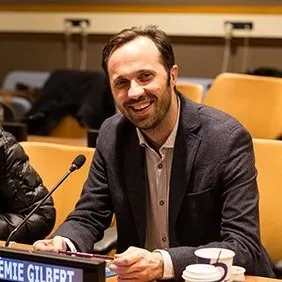Project overview
The Rights of Nature (RoN) movement is a novel approach to environmental legislation which aims to protect vulnerable ecosystems from exploitation by granting them legal rights. The most prominent examples of RoN legislation can be found in South America (e.g., 2008, 2012) New Zealand (2014, 2017), and India (2017), but recently the RoN movement is gaining momentum in Europe (2022). RoN legislation marks a radical departure from more anthropocentric approaches, as it recognizes that we owe duties to nature, regardless of human interests. As ecosystems cannot advocate for their own rights, indigenous groups and local communities are typically appointed to act as representatives for these entities.
Within the UK, the RoN movement is inchoate but growing. Several civil society initiatives over the past three years – including community charters, motions in local councils, and community declarations – have recognised the rights of nature. However, these initiatives face at least two serious obstacles. Firstly, the practices of these different initiatives are for the most part isolated from each other and from the global RoN movement. Secondly, there is currently no academic research into the conceptual foundations, legal plausibility, and ecological potential of the RoN movement in the UK. This project aims to resolve both problems.
This project has three main objectives:
1. To perform a definitive interdisciplinary investigation into the possibility and plausibility of awarding natural entities rights in the UK context.
2. To facilitate the development of a UK-wide network of local communities currently developing RoN initiatives.
3. To work with local initiatives involved in this network (Objective 2), to co-produce and implement research into the RoN in UK (Objective 1).
The main outputs to this project will be an academic examination of the possibilities of RoN in the UK, and the establishment of a UK-wide RoN advocate network.
Within the UK, the RoN movement is inchoate but growing. Several civil society initiatives over the past three years – including community charters, motions in local councils, and community declarations – have recognised the rights of nature. However, these initiatives face at least two serious obstacles. Firstly, the practices of these different initiatives are for the most part isolated from each other and from the global RoN movement. Secondly, there is currently no academic research into the conceptual foundations, legal plausibility, and ecological potential of the RoN movement in the UK. This project aims to resolve both problems.
This project has three main objectives:
1. To perform a definitive interdisciplinary investigation into the possibility and plausibility of awarding natural entities rights in the UK context.
2. To facilitate the development of a UK-wide network of local communities currently developing RoN initiatives.
3. To work with local initiatives involved in this network (Objective 2), to co-produce and implement research into the RoN in UK (Objective 1).
The main outputs to this project will be an academic examination of the possibilities of RoN in the UK, and the establishment of a UK-wide RoN advocate network.

